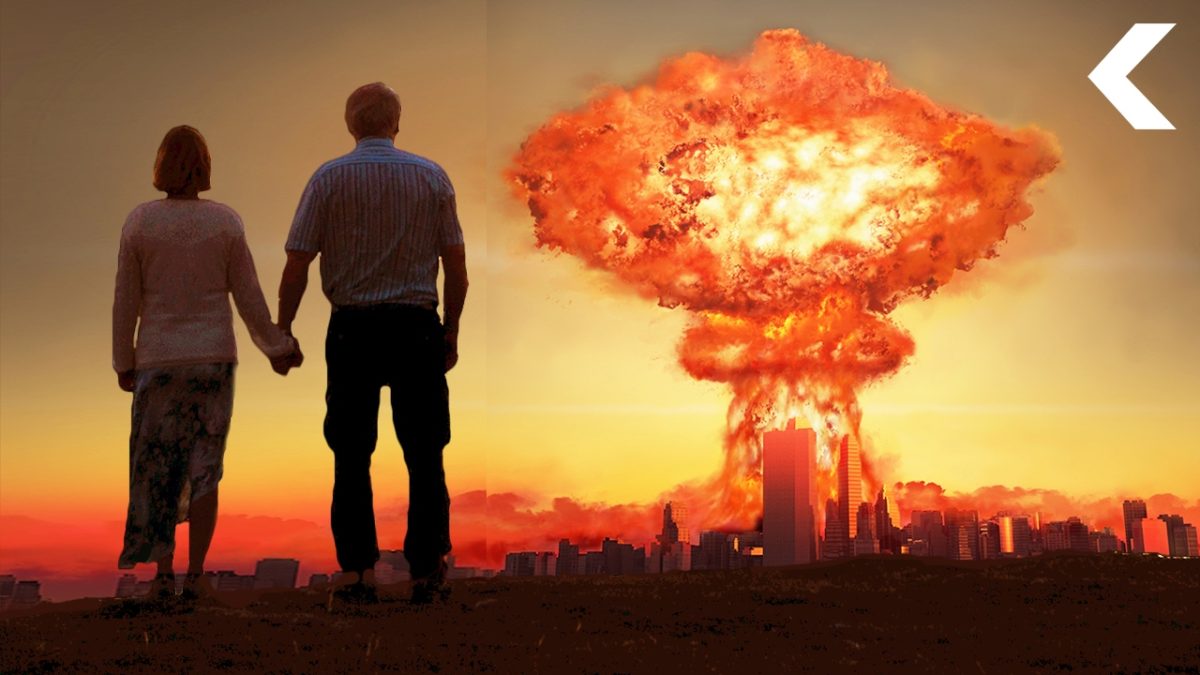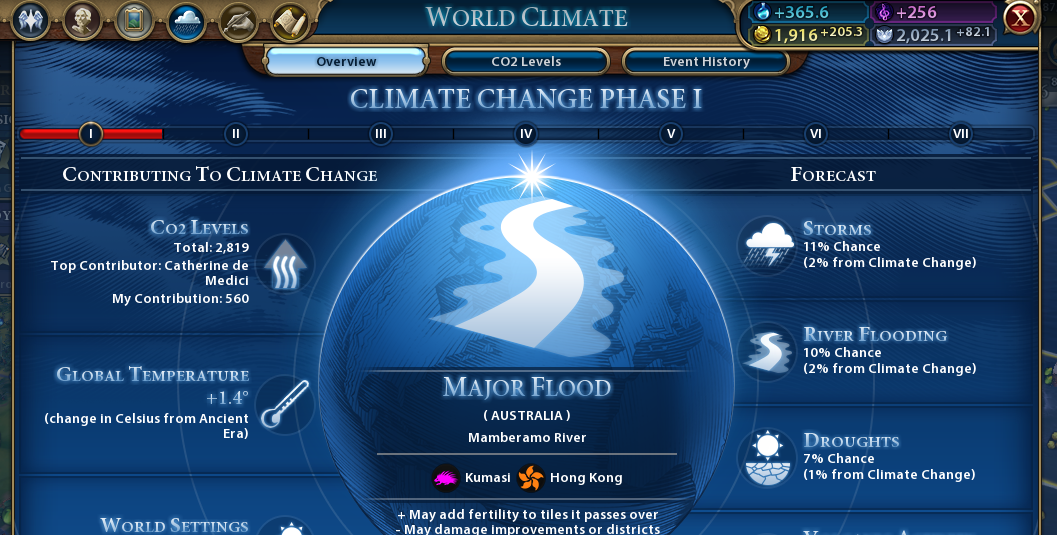The last Cricket World Cup is considered by many Black Caps fans to be their team’s finest moment, having made it as far as the final for the first time ever. Numbers man Dan McGlashan, author of Understanding New Zealand, thinks that this 2019 team might be an even better side than that one. This article compares the Black Caps side that will contest the 2019 Cricket World Cup in England with the side that played in the 2015 edition of the tournament.
First opener: Martin Guptill vs. Martin Guptill
The 2019 Martin Guptill has averaged a cracking 50.01 since the last CWC, at a strike rate of 94.70. He’s scored nine centuries in those 61 games, more than in the previous 108 games of his career. This is good enough to see him ranked 8th in the world. What’s more, he appears to be getting better and better.
Before the 2015 CWC, Guptill had a career average of 37.11. He was known as a very good player, with five one-day hundreds, but was not considered excellent. Having played 99 matches, this was about one century per 20 innings, compared to one century per seven innings since then. His century in the last pool match of the 2015 CWC was the start of this hot streak.
It’s the same player, only the 2019 version is more professional, making much better decisions, and making them with more authority. Because the pitches are expected to be flat during this World Cup, there is a good chance that Guptill will play another innings of 180+. He remains the most likely Black Cap to win the match with the bat.
2019 Black Caps 1, 2015 Black Caps 0
Second opener: Henry Nicholls vs. Brendon McCullum
Henry Nicholls has been outstanding recently in Tests, but opening an ODI is different to batting No. 5 in the white clothing. It’s not easy to tell how well he will do as opener, other than to guess based on well he has gone so far, mostly batting in the middle order: 41 matches since the 2015 CWC, averaging 35.48.
Brendon McCullum was on an outstanding run of form leading up to the 2015 tournament. Across 20 matches in the 2014/15 season, he scored 636 runs at an average of 33.47 and an astonishing strike rate of 140.70. This strike rate was so high it meant he scored his runs in fewer than four overs on average, leaving plenty for the other teammates.
Nicholls might have a better average than McCullum, but his role in the team is different, and he will not get the Black Caps off to the same starts as McCullum. However, he is less likely to put Williamson in early either. Perhaps it could also be said that Nicholls was more likely to score a century, but a strike rate of 140 cannot be fully compensated for.
2019 Black Caps 0, 2015 Black Caps 1
No. 3: Kane Williamson vs. Kane Williamson
Williamson averages 47.01 since the last CWC, which is good enough to see him ranked equal 11th in the world. Although he hasn’t been as spectacular as Guptill and Taylor, he has still been extremely solid, scoring five centuries in that time. One feels that it has only been the bounce of the ball and good bowling that has prevented him from scoring bigger.
The 2015 Williamson did not perform well in the knockout stages of the 2015 tournament, his highest score in the three matches being 33 against the West Indies. Although he averaged 45 at the time of the tournament, and had definitely come of age, he was not able to play many truly dominant innings in 2015.
The 2019 edition of the Black Caps captain is even calmer and more professional than the 2015 one. Also, thanks to his IPL experience, he is much better at hitting, and no longer simply relies on being hard to get out. He is, therefore, a more complete player, despite his numbers not showing a significant difference.
2019 Black Caps 1, 2015 Black Caps 0
No. 4: Ross Taylor vs. Ross Taylor
The 2015 Ross Taylor already had a claim to being New Zealand’s finest one-day batsman. At the start of the CWC that year, Taylor had 12 ODI centuries at an average of 41.75. This was a better record than anyone except for Nathan Astle. He had carried the batting for some years before McCullum, Guptill and Williamson came along and was by now the senior pro in the side.
Post eye-surgery Taylor has been something else. Since the 2015 CWC, Taylor has averaged a phenomenal 68.85, with eight centuries. His position as the greatest Kiwi one-day batsman ever is now certain, with Williamson the only possible challenger. His career average is now over 48, and if he continues in anything like the same form it will soon be 50.
One gets the feeling that, with Latham injured for some matches and replaced by the inexperienced Tom Blundell, Taylor might play the last line of real defence before the hitters come in. If that is so, his cool and professional approach will make his efforts at 4 crucial to the success of this campaign.
2019 Black Caps 1, 2015 Black Caps 0
Keeper-batsman: Tom Latham vs. Luke Ronchi
At time of writing, it still isn’t clear how many matches Latham will miss on account of his finger fracture, however it’s assumed that he will be back for the later pool games and any eventual knockouts. Although Latham is still a junior player in the side, he has averaged 37.86 since the last CWC and has cemented his spot at 5. He has shown that he can both rebuild and hit from the middle order.
Since hitting 170 against Sri Lanka just before the 2015 CWC, Ronchi was poor, averaging only 15.13 for the remainder of his career. Although this came at a strike rate of just over 100, it wasn’t enough runs to make an impact. His duck in the 2015 CWC final underlined this.
Latham might lack the big hitting ability of Ronchi, but is much more likely to score runs. Latham’s strike rate of 86 since the last World Cup is perfectly fine anyway. This is another clear win for the 2019 side, whose batting is significantly stronger overall.
2019 Black Caps 1, 2015 Black Caps 0
All-rounder: Jimmy Neesham vs. Corey Anderson
Jimmy Neesham has been in and out of the team in recent years, but his latest performances suggest that he has found a good vein of form. In the eight matches he has played since his comeback to the side, he has averaged 68 with the bat and 22.90 with the ball. Incredibly clean hitting has been a feature of his presence in the middle order.
Corey Anderson has had rotten luck with injuries, but at the time of the 2015 CWC he was putting up some good numbers with both bat and ball. He played a number of good hands in the 2015 tournament, most notably scoring a half-century and taking three wickets in the semifinal. Although a dynamic player, he was a loose one.
On balance, Anderson wins this because Neesham has not played many games recently. But chances are high that we see at least one spectacular innings from Neesham this World Cup, on account of that his hitting ability will find good use on the flat English decks. Whether Neesham can achieve Anderson’s consistency remains to be seen.
2019 Black Caps 0, 2015 Black Caps 1
Batting all-rounder: Colin de Grandhomme vs. Grant Elliott
Colin de Grandhomme is still a bit of an enigma in this Black Caps side. Although capable of massive hitting and incisive bowling, he remains a distinctly hit and miss player, especially with the ball. He has only spent three seasons in the team, but has scored over 400 runs at an average of 29 and strike rate of 110.
Elliott is known for playing the starring role in the greatest game in Black Caps history, the semifinal of the 2015 CWC. His inclusion in the Black Caps side was patchy up until the season of the tournament, but after the start of 2015 he averaged over 40 with the bat at a strike rate of almost 100. He made a reputation for himself as a batsman who could play any role.
It’s not certain that de Grandhomme has the skills to cope with a truly top-level attack, whereas Elliott scored 80s in both a World Cup semifinal and final. Moreover, de Grandhomme averages 46.33 with the ball and is unlikely to play much of role in that discipline in England. De Grandhomme could play some good innings in England, but he won’t be expected to star.
2019 Black Caps 0, 2015 Black Caps 1
First seamer: Trent Boult vs. Trent Boult
Boult was an unknown in the Black Caps one-day setup until shortly before the 2015 CWC. He had only played 16 ODIs for New Zealand before the tournament began, and was regarded by most as a Test specialist a year beforehand. Many pundits thought that his nagging medium-fast bowling would prove easily hittable.
By 2019, he is solidly established as New Zealand’s premiere new ball bowler. He is rightly ranked 2nd in the world, behind only Jasprit Bumrah. Since the end of the last CWC he has taken 107 wickets at an average of 24.59, which, if one considers the high-scoring nature of this era, is almost as good as the best years of Hadlee and Bond.
The 2019 Boult is getting some of his deliveries up to 145km/h, without losing any of the accuracy that he is known for. This makes him even more dangerous than before. As with Guptill, Williamson and Taylor, Boult is simply a more skilled and more professional version of the player he was at the time of the 2015 CWC.
2019 Black Caps 1, 2015 Black Caps 0
Second seamer: Matt Henry vs. Tim Southee
Since the 2015 Cricket World Cup, the conditions of the game environment have changed. Pitches are much flatter, especially in England. Naturally, bowling averages have gone up. This means that it has been much harder than before to take wickets cheaply.
Nevertheless, Henry has taken 55 wickets since the last CWC, at an average of 29.72. Southee has taken 54 wickets, despite playing 12 more matches than Henry, at an average of 41.46. Many will be surprised to hear that Henry has taken more wickets since the final against Australia, on account of that he has played so many fewer games, but that only underlines how effective he has been.
Henry is currently ranked 14th in the world in ODIs, notably ahead of Dale Steyn (16th) and Mitchell Starc (22nd), and was in the top 10 last time he had an extended run in the side. Southee is languishing at 40th. At the start of the 2015 CWC, Southee was ranked 21st, but it’s doubtful that he was as good as Henry is now.
2019 Black Caps 1, 2015 Black Caps 0
Third seamer: Lockie Ferguson vs. Adam Milne
Ferguson is the latest addition to the Black Caps seam battery. Over the past two years, he has been impressive, taking 38 wickets at an average of 23.76. Those are good enough numbers to have seen him climb to 21st in the world rankings, higher than even Mitchell Starc. Although he is still raw, some of the deliveries he puts down would have made Shane Bond proud.
Milne has been bedevilled by injuries, since even before the 2015 CWC. Because of this, he has never been able to get a good run of form going, and as such has only taken 41 wickets in 40 matches, at a career average of 38.56. Despite being economical, Milne has struggled to do real damage with the ball, and at the time of the 2015 tournament was not considered a major strike threat.
Although Milne was just as fast, Ferguson is a much more incisive bowler. Without much precision in either line or length, Milne’s raw pace was hittable. Ferguson has both of those qualities as well as a greater ability to swing the ball. He makes an excellent change of pace for the times when Boult and Henry cannot break through.
2019 Black Caps 1, 2015 Black Caps 0
Spinner: Mitchell Santner vs. Dan Vettori
Santner has cemented a place in the Black Caps ODI side thanks to frugal spin bowling and big hitting from the lower order. Early last year he had an ODI bowling ranking of 7th, thanks to a truly miserly economy rate of 4.68 over his last 50 games. He also averages a handy 27.53 with the bat, and a more than handy 32.30 over the past two seasons. At his favoured position of 8 he averages 37.73.
Vettori, however, was rated as one of the world’s best ODI bowlers before his 2015 swansong. Although he was only 14th in the rankings at the time, he had been ranked as high as 1st, on account of his fiendishly tight fingerspin bowling. By 2015, it was accepted worldwide that the way to deal with Vettori was to just play him out. Hitting him out of the attack was all but impossible.
Santner might well be as good as Vettori at the 2023 CWC, but this is probably one tournament too early for the peak of his career. He certainly has potential to play some decisive roles with both bat and ball this season, but Vettori was a proven performer who was once ranked No. 1 at his chosen discipline.
2019 Black Caps 0, 2015 Black Caps 1
Total – 2019 Black Caps 7, 2015 Black Caps 4
For all the hype around the 2015 Black Caps, and for all the hype around England and India in 2019, few appear to realise quite how strong the 2019 Black Caps side is. Not only will it field three batsmen with higher career averages than Ricky Ponting, but it will also have three seamers with averages below 29, which are fine numbers in this era.
This means that the 2019 side has three of the Black Caps’ best ever batsmen, all in career-best form, as well as a guaranteed 40 overs of world-class bowling, compared to 25-30 at the last tournament. In all, they should be at least as strong a contender as at the 2015 CWC, and must be considered one of the favourites for the title.
*
If you enjoyed reading this essay, you can get a compilation of the Best VJMP Essays and Articles of 2018 from Amazon for Kindle or Amazon for CreateSpace (for international readers), or TradeMe (for Kiwis). A compilation of the Best VJMP Essays and Articles of 2017 is also available.




